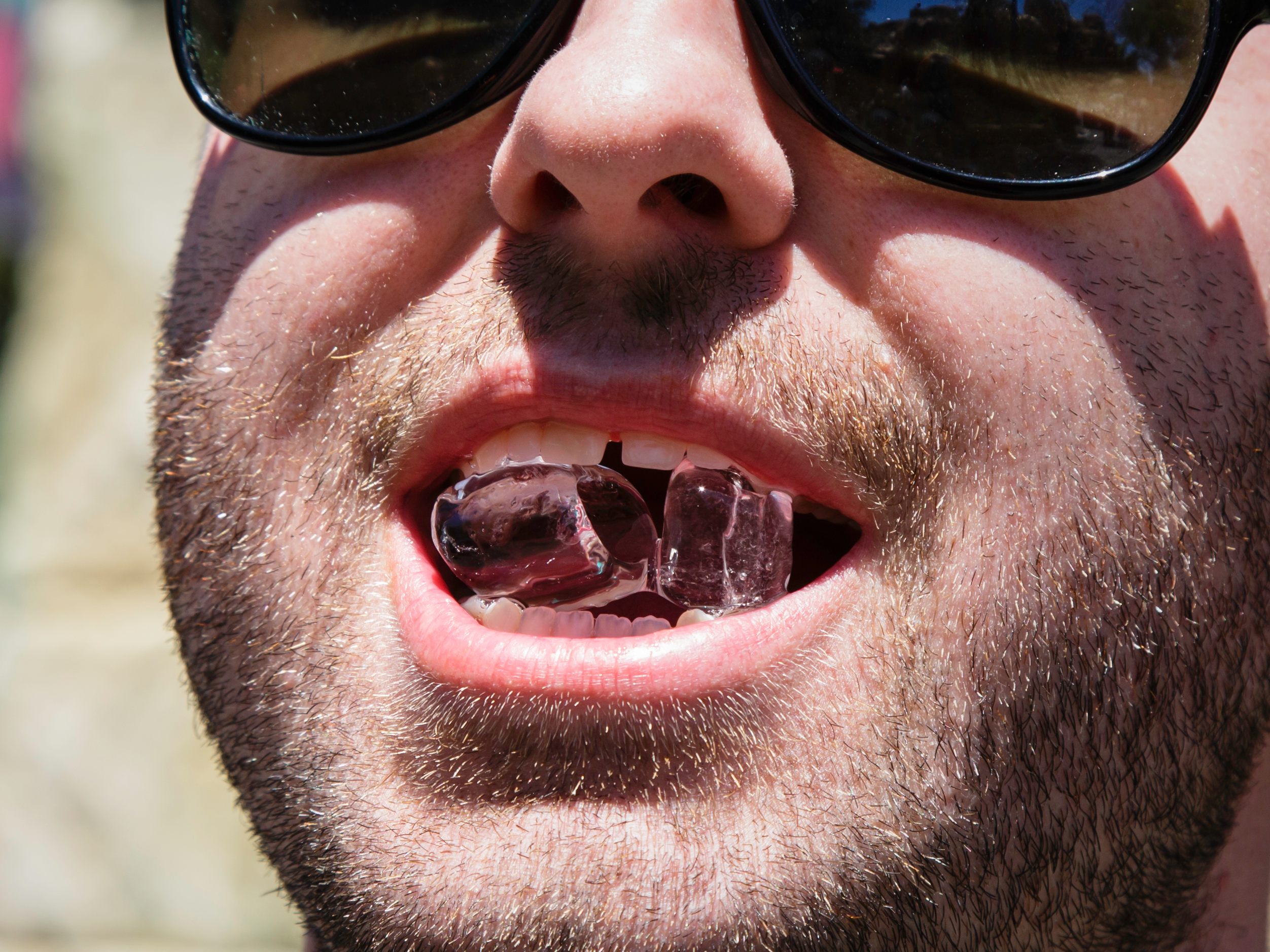- Chewing ice is bad for your teeth because it can damage your tooth enamel, or the protective layer that shields your teeth from decay.
- You especially shouldn’t chew ice if you have fillings, braces, or other dental restoration work, as it can cause more damage and be expensive to fix.
- You may want to find another way to replace the sensation of chewing ice, or only chew softer, crushed ice if you can’t break the habit altogether.
- Visit Insider’s homepage for more stories.
If you find yourself craving ice – and specifically wanting to crunch it with your teeth – then you’re not alone.
“I have many patients that chew ice on a daily basis, which they admit to me as if it’s something terrible during their appointments,” says Mark Burhenne, DDS, founder of AsktheDentist.com. “It’s often a ‘guilty pleasure’ of sorts.”
In fact, chewing ice is one of the worst habits that can damage teeth, according to the American Dental Association. Here’s how it can harm your pearly whites.
Chewing ice can be bad for your teeth
Chewing on hard foods, like ice, can damage your tooth enamel – a hard, protective surface layer that shields your teeth from decay.
"If your tooth enamel were to be damaged, your teeth and entire oral hygiene, including gums, would then be susceptible and even prone to more bacterial infections and diseases," says Shahrooz Yazdani, DDS, from Yazdani Family Dentistry.
The American Dental Association explains that when you force two extremely hard surfaces together, one is going to break. Most of the time it's the ice that breaks, but occasionally it's the tooth that bears the brunt of the damage.
Beyond hurting your enamel, you could actually fracture your tooth, according to John Grbic, DMD, Professor of Dental Medicine at Columbia University Medical Center.
"It's not uncommon," he says. "Every week we see at least one patient who has fractured their tooth because they ate an unpopped popcorn kernel, hard candy, or ice."
Don't chew ice if you have fillings
In addition to damaging teeth, Grbic says chewing on ice can damage restoration work, like fillings or braces.
It isn't an easy habit to kick, but finding a replacement could save your teeth from damage and expensive dental work. If it's the cold icy sensation you crave, Grbic recommends simply letting it melt in your mouth instead of crunching on it.
Unfortunately, if it's crunching that you desire, you're going to struggle to find a healthy alternative. Anything as hard as ice will be too hard on your teeth, and Grbic warns against reaching for hardy candy in place of ice.
If you can't replace your habit, you could disrupt it. For example, the American Dental Association suggests drinking from straws as a means of avoiding thoughtless chewing on ice - or switching to cold drinks without ice.
You might benefit from exploring what could be causing your ice chewing cravings. This is a habit that has been linked to anemia, and an iron supplement might help get your cravings in check. Additionally, if the habit is a severe compulsion, you may have PICA, a mental health disorder that is characterized by eating inedible things. Visiting with a therapist or psychiatrist is the first step in treating PICA.
Though, if you absolutely must chew ice, Burhenne recommends crushed ice, which is much softer. Ideally, you'd quit the habit altogether, but this softer ice could at least minimize the damage done.
If you're facing damage to your teeth because of crunching down on ice or other hard objects, see your dentist. They may recommend a veneer or crown to repair cracked or eroded enamel.
Related stories about dental health:
- The best teeth whitening kits
- The best toothpaste
- The best electric toothbrushes
- How to whiten your teeth naturally, with at-home methods
- Does baking soda whiten teeth? It can, but toothpaste is a better option - here's why
- 10 signs your teeth aren't as healthy as you think they are
- 13 things you do every day that can ruin your teeth
